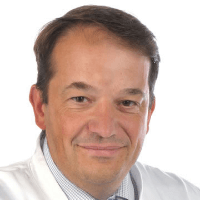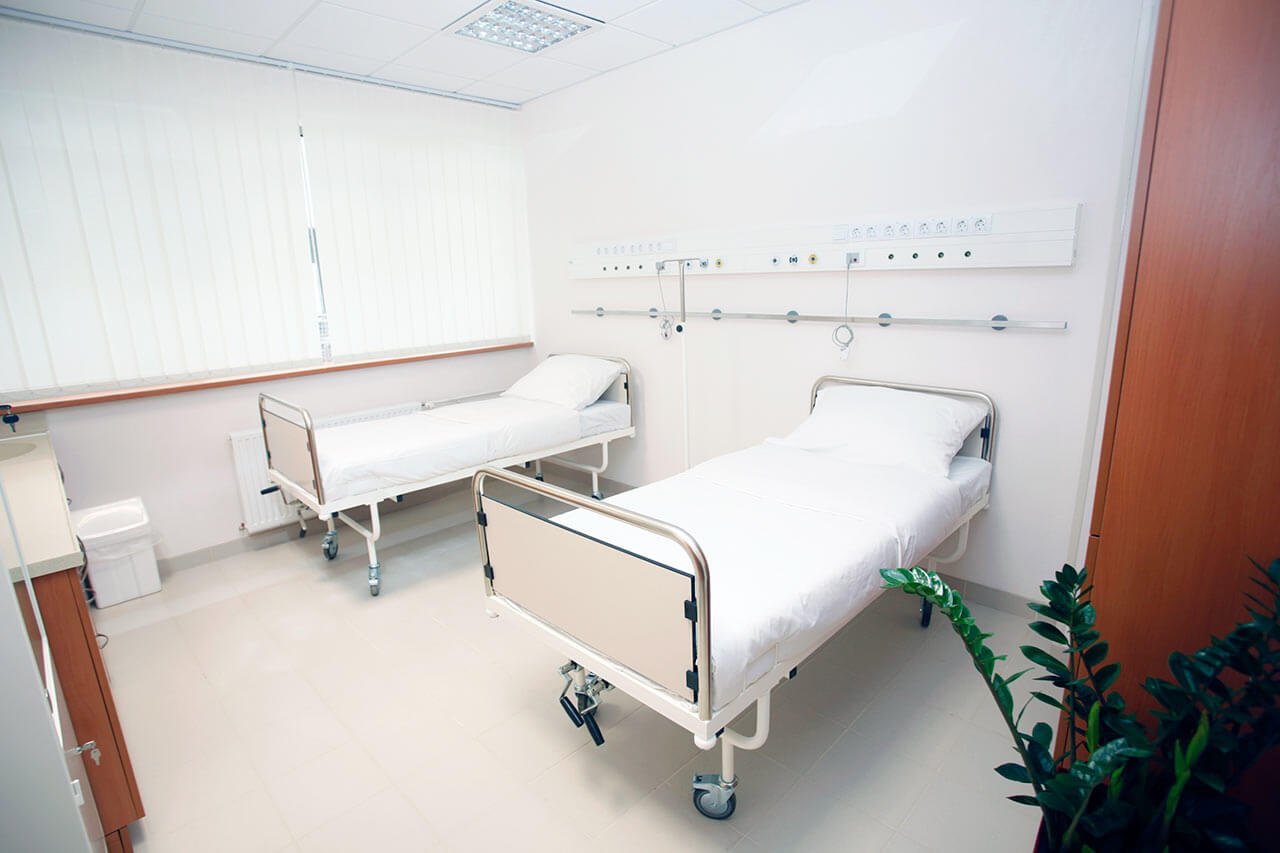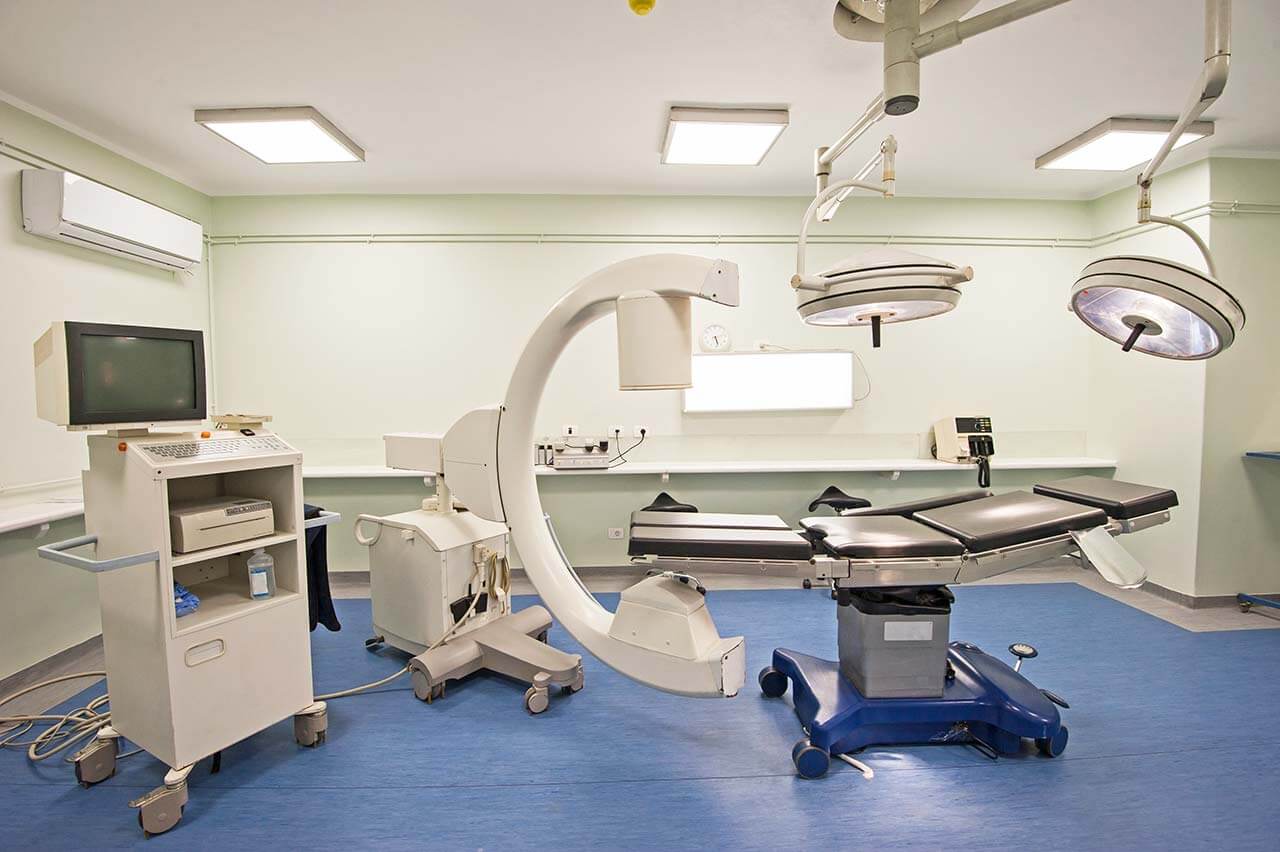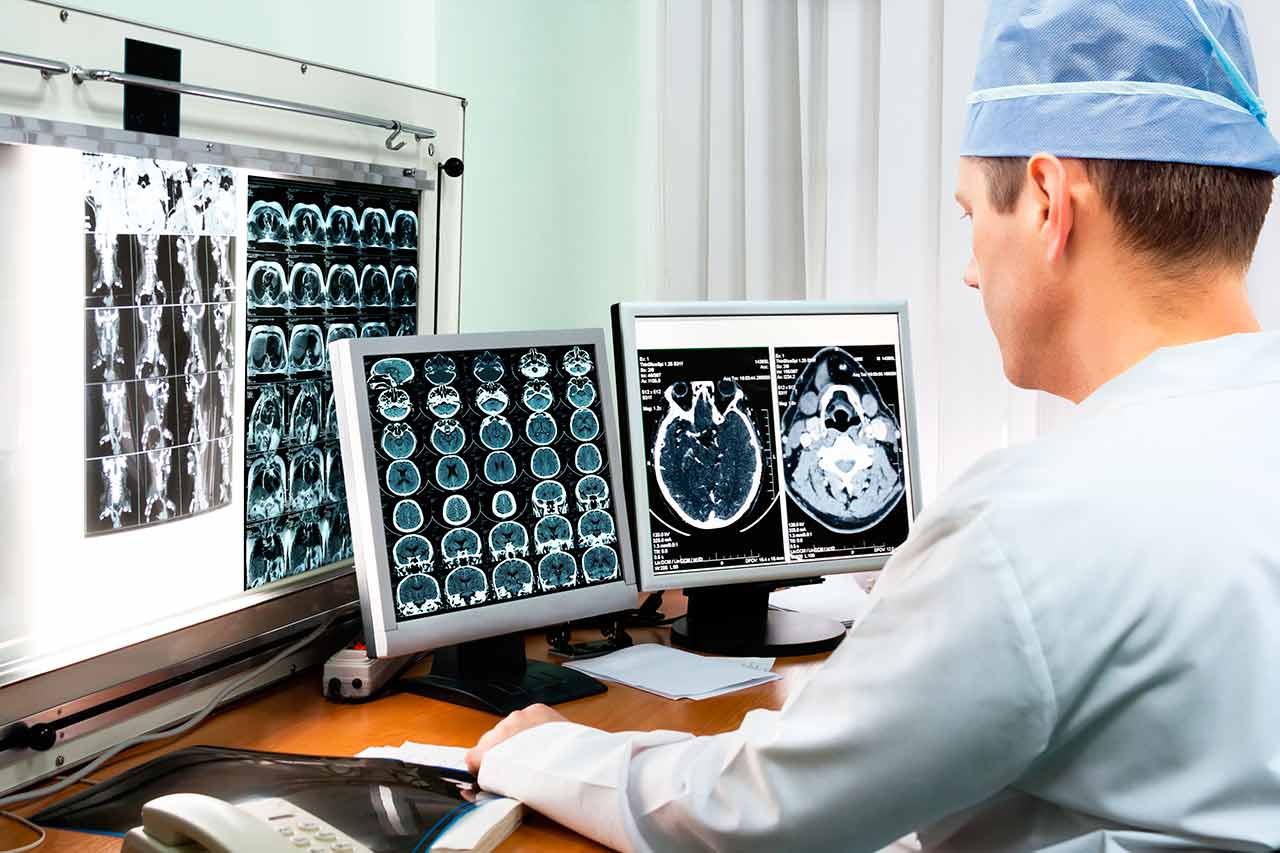
About the Department of Adult and Pediatric Nuclear Medicine at University Hospital Muenster
The Department of Adult and Pediatric Nuclear Medicine at the University Hospital Muenster offers the full range of radioisotope diagnostics and therapy at the highest technical level. The department specializes in the detection and treatment of benign and malignant thyroid diseases, oncopathology of other organs and anatomical structures of the human body. The department's feature is the radioisotope examinations in children, for example, PET-CT, PET-MRI, kidney, bone scintigraphy, etc. The high-quality medical care is provided thanks to the availability of advanced medical technologies and experienced medical personnel who regularly undergo advanced training courses to keep abreast of medical innovations. The department is headed by Prof. Dr. med. Michael Schäfers.
One of the classic treatment methods in nuclear medicine is radioiodine therapy, which is used to treat various benign (thyrotoxicosis) and malignant (papillary and follicular thyroid cancer) thyroid diseases. As a rule, the decision on the feasibility of radioiodine therapy is made within the outpatient admission. In addition, the therapeutic range covers such treatment methods as therapy for the treatment of bone metastases in prostate cancer, peptide receptor radionuclide therapy using lutetium Lu-177 DOTATATE in neuroendocrine tumors, PSMA therapy for the treatment of prostate cancer, selective internal radiation therapy using Yttrium-90 microspheres for the treatment of liver tumors and many other effective treatment methods.
The department is one of the most progressive medical institutions of this kind in Germany, which employs highly qualified, world-class specialists, including specially trained doctors for radioisotope diagnostics in children.
The diagnostic range of the department's services includes:
- Examinations of the circulatory and lymphatic systems
- Gamma camera/SPECT-CT
- Blood volume assessment in dehydration, overhydration, etc.
- Measurement of red blood cell viability, for example, in hemolytic anemias
- Imaging of the bone marrow functioning, for example, in the case of metastases in the bone marrow or bones
- Functional examination of the lymphatic vessels of the lower limbs, for example, in leg lymphedema
- Assessment of platelet viability, for example, in immune thrombocytopenia
- Imaging of lymph efflux and sentinel lymph nodes to localize sentinel lymph nodes prior to surgery (for example, in melanoma, breast cancer)
- Gamma camera/SPECT-CT
- Brain examinations
- Amino acid metabolism examination, for example, in brain tumors
- Imaging of beta-amyloid deposits in the brain
- Imaging of the dopamine transporter system (postsynaptic part) in Parkinson's disease, multiple system atrophy, etc.
- Imaging of the dopamine transporter system (postsynaptic part) (DatSCAN®)
- Examination of blood circulation in cerebrovascular diseases, dementia, stroke
- Scintigraphy of the spinal cord canal, for example, in pathological cerebrospinal fluid leak
- Lung and heart examinations
- Examination of pulmonary circulation and ventilation, for example, in pulmonary embolism (for preoperative evaluation)
- Examination of glucose metabolism to determine myocardial tissue viability
- Examination of the sympathetic nervous system in innervation disorders
- Examination of blood circulation in cardiovascular diseases (for example, coronary artery disease, heart attack)
- Cardiac SPECT-CT
- Myocardial scintigraphy
- Examination of the gastrointestinal tract (SPECT-CT/gamma camera)
- Scintigraphy to determine localization of the gastrointestinal bleeding
- Examinations in liver dysfunction
- Examination in gastrointestinal dysfunction (gastric emptying scintigraphy)
- Examination to localize Meckel's diverticulum
- Functional examination of esophageal muscles in case of impaired esophageal motility
- Kidney examinations (SPECT-CT/gamma camera)
- Examination of tubular kidney function in kidney failure, before the donorship, etc.
- Examination of glomerular kidney function, for example, in kidney failure
- Static renal imaging in regional defects
- Thyroid and parathyroid examinations
- Thyroid fine needle biopsy
- Thyroid and parathyroid scintigraphy
- Whole-body scintigraphy using iodine (iodine metabolism examination as part of follow-up monitoring after thyroid cancer treatment)
- Thyroid ultrasound examinations
- PET-CT for the diagnostics of cancer and inflammatory processes
- Amino acid metabolism examination, for example, in brain tumors
- Examination of glucose metabolism in tumors (for example, bronchial carcinoma, lymphoma, melanoma)
- Examination of the sympathetic nervous system in pheochromocytoma, neuroblastoma, etc.
- Examination of fluoride metabolism in inflammatory diseases of bones and joints, bone metastases, bone tumors
- Imaging of prostate-specific membrane antigen in prostate cancer
- Imaging of somatostatin receptors in neuroendocrine tumors
- SPECT-CT for the diagnostics of cancer and inflammatory processes
- Examination of the sympathetic nervous system in pheochromocytoma, neuroblastoma, etc.
- Skeletal scintigraphy
- Leukocyte scintigraphy
- Imaging of somatostatin receptors in neuroendocrine tumors
- Sentinel lymph node scintigraphy
- Testicular perfusion test in testicular torsion
- Functional examination of the salivary glands in acute and chronic salivary gland inflammation
- Functional examination of the lacrimal ducts
- Pediatric examinations
- PET CT
- PET MRI
- Kidney scintigraphy
- Skeletal scintigraphy
- MIBG scan
- Other diagnostic options
The therapeutic range of the department's services includes:
- Alpharadin therapy in prostate cancer and bone metastases
- Lutetium Dotatate therapy in neuroendocrine tumors
- 131 I-MIBG-therapy in neuroblastomas
- PSMA therapy in prostate cancer
- Radioiodine therapy in malignant diseases of the thyroid gland (papillary and follicular cancer)
- Radioiodine therapy in benign thyroid diseases (for example, goiter, thyrotoxicosis)
- Samarium therapy (pain therapy in bone metastases)
- Selective internal radiation therapy in liver cancer and liver metastases
- Cevaline therapy in non-Hodgkin lymphoma
- Other treatment methods
Curriculum vitae
- 04.1999 Habilitation, Department of Adult and Pediatric Nuclear Medicine, University Hospital Muenster.
- 07.1994 - 10.1995 Research Fellow, MRC Cyclotron Unit, Imperial College School of Medicine, London, UK.
- 06.1995 Doctoral Degree, Department of Adult and Pediatric Nuclear Medicine, University Hospital Muenster.
- 10.1987 - 06.1994 Study of Medicine, State Examination, University of Muenster.
- Since 12.2008 Full Professor of Nuclear Medicine, Director of the European Institute for Molecular Imaging (EIMI).
- Since 08.2013 Director of the Department of Adult and Pediatric Nuclear Medicine, University Hospital Muenster.
- Since 07.2007 Chairman of the European Institute for Molecular Imaging (EIMI), University of Muenster.
- 09.1999 - 06.2007 C3 Professor (tenure track) of Experimental Nuclear Medicine, University of Muenster.
Awards
- 09.2011 Poster Award of the German Society for Nephrology, German Society of Nephrology.
- 10.2004 Tyco Healthcare Advancement Award, German Society for Nuclear Medicine.
- 2004 Young Investigator Award, International Conference on Nuclear Cardiology (ICNC), Florence, Italy.
Membership in Professional Societies
- Since 2010 Chairman of the German Universities Nuclear Medicine National Committee.
- Since 2003 Chairman of the Cardiovascular Committee.
- Member of the Society of Nuclear Medicine (SNM).
- Member of the European Society of Molecular Imaging (ESMI).
- Member of the German Society of Cardiology (DGK).
- Member of the German Society of Radiology (DRG).
- Member of the German Society of Nuclear Medicine (DGN).
Research Focuses
- Multimodal molecular imaging.
- Development of targeted imaging probes for molecular imaging of cardiovascular inflammation.
- Apoptosis and automatic innervation.
- Phenotyping of transgenic mouse models.
- Clinical multimodal cardiovascular research.
- Hybrid imaging.
Photo of the doctor: (c) Universitätsklinikum Münster






